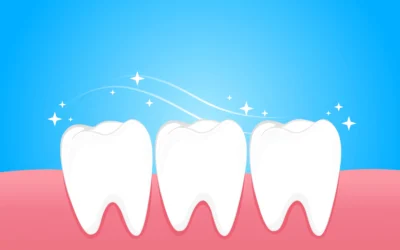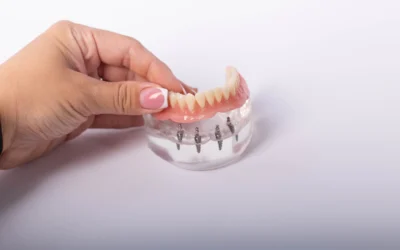Have you noticed a cavity in your tooth? If so, don’t hesitate to notify your dentist about it. It could be a sign of a serious dental issue that might easily affect other teeth and overall oral health.
Read on for ideas about the common hole in tooth causes and how you can fix these issues.


Common Causes of The Hole: Tooth Decay Process
Plaque and bacteria accumulate where there is poor oral hygiene. For example, pits in the teeth appear more regularly where a person has been neglecting regular dental cleaning at home. The person may also have been avoiding dental check-ups that could identify and resolve those issues before the cavity forms.
An unhealthy diet is another primary cause of hole-in-tooth issues. It includes excessive consumption of sugary foods and drinks, increasing tooth enamel erosion. This decay also leads to softening of the teeth.
Holes in teeth commonly appear from tooth decay (dental caries) or cavities. While cavities can be painful, most go unnoticed until there is significant dental health damage. Cavities include symptoms like:
- Spontaneous, inexplicable tooth pain
- Tooth sensitivity
- Visible holes in your teeth
- The hole in tooth stinks
- Mild to sharp pain when you eat or drink something hot, cold, or sweet
- Black, white, or brown staining on the teeth surface
What should you do if you notice a cavity in your teeth?
If you suspect tooth trouble, it’s time to see our dentist. They will normally conduct an X-ray examination to determine the extent of tooth decay. The dentist may also recommend any of the following tooth decay treatment options, depending on the severity of your cavity:
Dental Fillings
In this treatment, the dental care professional will remove the decayed tissue using a drill and fill the tooth with composite resin.
Dental Crowns
If the decay is severe, your dentist may need to place a custom-fit cap over the treated tooth to replace the natural crown.
Tooth Extraction
If beyond salvage, your dentist may turn to extraction. The process would typically involve replacing it with a partial denture, bridge, or dental implant.
Hole in Tooth Root Canal Therapy
If untreated, tooth decay progresses deep inside the tooth. It eventually reaches the pulp tissue and kills the remaining nerves. Dentists perform a root canal treatment to replace the infected pulp with a filling, which often saves the teeth that would otherwise require removal.
The procedure involves removing some nerve tissue, blood vessels, and decay from the tooth. The dentist then checks for infections and applies medication to your roots as necessary. This endodontic treatment can fix a wide range of dental issues, including deep cavities, abscesses, and injuries.
Do You Have Holes in Teeth Without Pain?
While cavities cause debilitating pain, statistical data shows that some pits are painless. The tooth decay begins on the tooth’s outer layer, where there are no nerves. You’ll only experience pain when the erosion deepens.
It’s important to deal with the decay, tooth cavity, or other symptoms early. If you notice holes in your teeth, you should see a dentist as soon as possible, even if there’s no pain.
Any openings in teeth are cavities. As plaque, acid, and bacteria in the mouth continue to erode the tooth enamel, these cavities grow. The decay will progress unless you receive professional treatment.
How To Prevent Tooth Decay and Bacteria in Your Mouth
While data from the American Dental Association (ADA) shows that children are more prone to tooth decay, this problem affects all ages. However, there are simple ways to prevent plaque build-up, cavities, gum disease, and tooth loss, including:
- Brushing your teeth at least twice a day with fluoride toothpaste to prevent bacteria and plaque
- Booking dental check-ups at least once every six months
- Avoiding foods and snacks high in sugar
- Reducing sugary drink consumption
- Strengthening your teeth enamel by drinking fluoridated water regularly
- Removing particles between your teeth daily with dental floss
- Visiting your dentist promptly when you experience persistent dry mouth symptoms
- Rinsing with mouthwash daily
You might also want to consider fluoride treatment. Fluoride is a mineral that stops tooth decay from progressing and may even reverse the early deterioration. It helps protect your teeth by strengthening the enamel and making it more resistant to stomach acid that causes a hole in tooth cavity.
If your dentist thinks you need more fluoride, they may:
- apply a fluoride varnish or gel to your teeth,
- recommend a fluoride mouth rinse, or
- prescribe fluoride tablets.
Call My Emergency Dental Today
If you discover holes in your teeth or find you need general dental health information, visit your dentist at My Emergency Dental. We offer high-quality dental services for various health problems, including extractions, root canals, crowns and bridges, dental fillings, preventative dentistry, and emergency dental treatment for adults.
Please make an appointment at 470-523-8118 to meet one of our experienced dentists today for an effective hole-in-tooth fix! Alternatively, visit us at 4811 Lower Roswell Rd Suite 108 Marietta, GA 30068.



